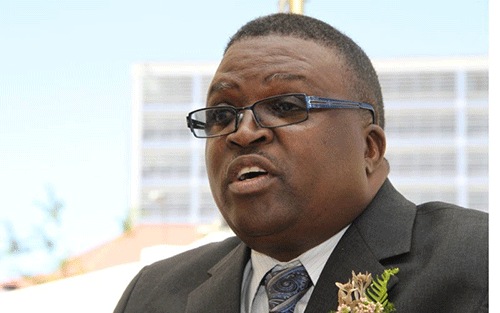One of the smallest local authorities, the Ruacana Town Council, is upbeat about its performance, asserting it did its best to deliver basic services to residents within its budgetary confines.
The town’s former CEO Emilia Nanyeni attributed the authority’s recent audit report achievement to the adoption and implementation of International Public Sector Accounting Standards (IPSAS), standards which have proven difficult for many other municipalities to meet.
“I hope and anticipate that decision-making for potential investors (locally and internationally) has been enhanced by the way the town council is reporting its financial information,” Nanyeni said in the report.
This was seen as an achievement on the front of affordable land delivery to Namibians, it is recorded.
Auditor general (AG) Junias Kandjeke in June gave the town council a clean [or qualified] audit opinion as its financial position, in all material terms, reflected its financial health for the 2019/20 financial year (FY).
It was tabled in the National Assembly for scrutiny recently.
During the period under review, approval was granted to establish Ruacana Extension 3, comprising 308 erven.
Nanyeni reminded local authorities that they exist to render services.
“As a town council, the very reason for proclamation was to ensure we become the vehicle of social upliftment for the communities we serve,” she said, adding that concerted efforts were afoot to improve services.
The advent of Covid-19, which ravaged lives and livelihoods, did not spare the council.
“The financial year 2019/2020 has particularly been a challenging one, as the arrival of Covid-19 exerted more pressure on council’s operations, ,” she stated.
They could not turn to government for its usual support, as it too was grappling with the deadly virus.
But, this did not stop RTC from recording successes.
She pointed to the construction of gravel roads worth NS1.7 million in Oshifo’s Extension 1 and 2.
“This created access streets to 61 residential properties, 32 business properties and six public open spaces,” Nanyeni observed.
More so, the council spent a further N$1.6 million to electrify 65 residential properties.
“The council’s water reticulation network in Extension 3 of Oshifo was also expanded to give services to 185 residential properties,” she said.
This self-financed initiative cost the council N$510 506.
During the period under the spotlight, the RTC increased its revenue, excluding capital transfers and contributions by 12%, while its personnel cost stood at 42% of total expenditure, which is 35% above the national norm.
If juxtaposed against other State entities like the education ministry, which spends over 80% of its budget on personnel-related costs, Ruacana is faring well.
“It has been difficult to reduce the salary costs as the service delivery functions are not for profit. Council has to implement spending controls, cost containments as well as financial discipline,” she continued.
The council also managed to increase its cash balance from N$256 597 to N$1.7 million the previous financial year.
Nanyeni left the town council last year under a cloud.
According to an investigation, the council budgeted N$4 million for capital projects, including funds for the drilling of boreholes at Oshifo and Ruacana proper, during the 2020/2021 financial year.
It afterwards requested the ministry to disburse funds for the borehole projects, using forged documents. In a letter dated 22 April 2022, minister Erastus Uutoni directed the council to act on the findings and recommendations. To date, no action has been taken.
She has denied any wrongdoing.



